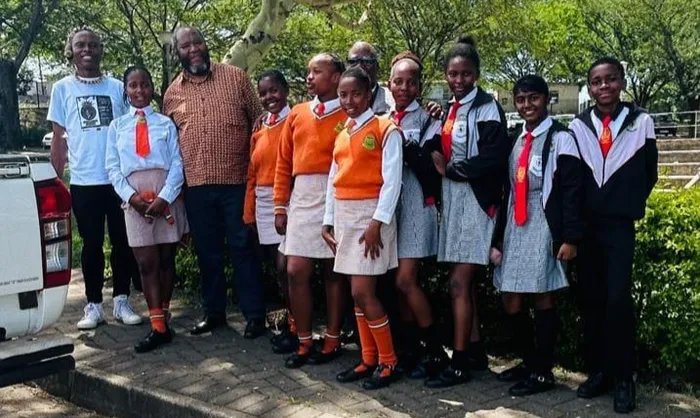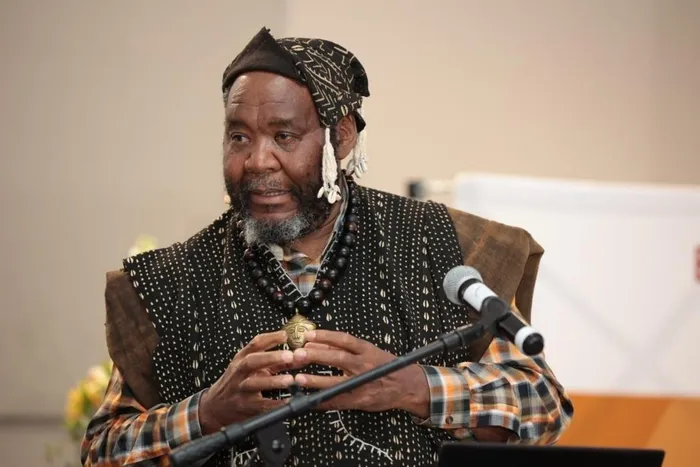Education and evidence: Building a numerate, responsible citizenry for the future

Children from primary schools in Mandeni.
Image: Supplied
How do we change our environment, life situation and political economy? This change can be achieved through education. By training our minds and achieving capabilities and capacity not only to change the current but to project into the future we can create an environment that is predictable risks notwithstanding. The aim will be to consistently design inputs and processes that derive change that must be for the better.
Morena Mohlomi, a mentor to the king of Lesotho, Morena Moshoeshoe, makes a distinct difference in the definition of leadership. His definition reads thus the point that “a responsible leader pursues peaceful and productive alliances, accommodates stakeholders, and uses new instruments of power to create intergenerational value through integrated reporting.”
To this end Mohlomi was a design thinker who designed a system that is more likely to deliver impacts that have been planned for. Measurement was important to him both at process level and at the end state point. To this end he emphasised integrated reporting as the measurement system and creation of intergenerational value as the impact. The process and inputs were mobilisation of stakeholders towards a goal.
I was in Mandeni, an hour drive north of Durban, where StatsSA with the Mandeni municipality hosted schools that were highlighting the importance of evidence. From there I proceeded to Lesotho where I was attending the 80th Anniversary Celebrations of the National University of Lesotho. The session was preceded by the meeting of UBLS Alumni that holds chapters in Botswana, Eswatini, Lesotho and South Africa. The session was held in a town where I went to High School. By some coincidence 50 years later I met my classmates who had convened to consider what has to be done with Thabeng High School, which moulded us as the first crop of matriculants from the school.
In Mandeni I connected with primary and high school students who were engaged in discussions about the challenges of their municipality. They based their arguments and recommendations on data from StatsSA. They weighed such against the United Nations Sustainable Development Goals (UN-SDGs). We had run a small survey in one school to test the concerns that young learners have as well in their lives.
The annual sessions in which I have consistently participated in show that students can handle data such that they can engage themselves with the realities of their lives and use such evidence as the basis for rationale discussions. But importantly by engaging intimately and through evidence in the daily struggles of their municipalities a more conscious youth can generate coherent political discourse on their livelihoods and futures. Secondly the learners demonstrated that through the endeavour they get better at data handling and statistical skills. The added advantage in this is that they immediately remove the fear in the use of numbers and their capacity to handle dreaded subjects such as mathematics.
The study of responsible citizenry is enhanced by the interaction of the youth with their municipality and knowledge of their immediate environment.
Throughout my primary, high school and university studies I was not exposed to what the children in Mandeni were exposed to at a conscious data as evidence, I reflected on this as I drove through Morija where I went to High School. I could see the houses including where we used to sneak out for homebrew at night. I had no clue on the size of the village and the living conditions of the villagers around the school. I went through that life without broad appreciation of the evidential and experiential livelihoods of the villagers at the aggregate level.
The programme of Census@schools that we initiated at StatsSA two decades ago provide a better platform for foresight and outlook by the younger generation. Whilst when we met at Thabeng High School we reminisced on generalities from memory 50 years ago, the children of Mandeni will be discussing specificities of the history. The evidential base as an approach to life will remedy the fear for mathematics and statistics, which Prime Minister Verwoed imposed on Black youth, including through Bantu Education.
The youth of today as demonstrated by those of Mandeni will have no fear for mathematics and they are well prepared for the citizenry of the future where Artificial Intelligence is becoming a reality. As HG Wells said a century and more ago “In the future numeracy will be as essential to humanity as is the ability to read and write.”
By pursuing the Isibalo programme we are surely building more than a numerate society but one that is compassionate about development. Mandeni municipality by adopting Isibalo leads the charge.

Dr Pali Lehohla is a Professor of Practice at the University of Johannesburg, among other hats.
Image: Supplied
Dr Pali Lehohla is a Professor of Practice at the University of Johannesburg, a Research Associate at Oxford University, and a distinguished Alumni of the University of Ghana. He is the former Statistician-General of South Africa.
*** The views expressed here do not necessarily represent those of Independent Media or IOL.
BUSINESS REPORT